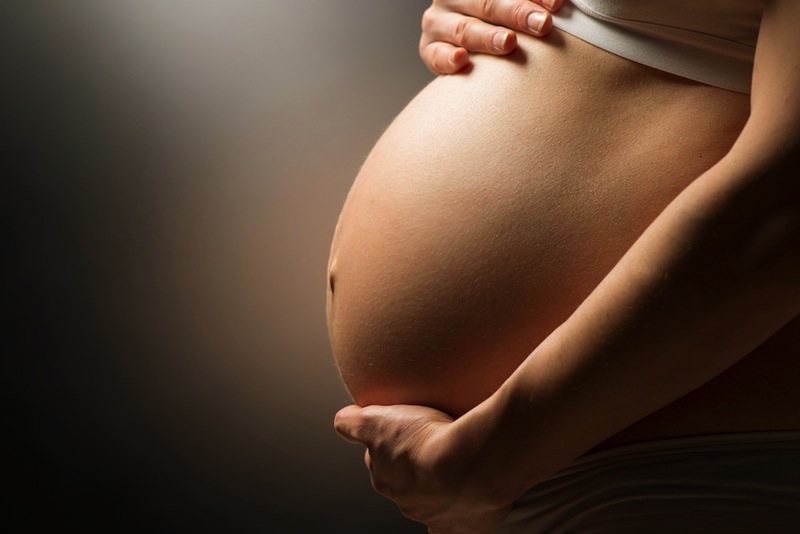National Tragedies Could Harm Pregnant Women's Mental Health

A plane crash thousands of miles away can affect the mental health of pregnant women, new research finds.
In the month after the commercial Malaysia Airlines Flight MH17 was shot down over Ukraine, killing everyone aboard, women in their third trimesters of pregnancy in the Netherlands became measurably more depressed. (The plane's passengers were mostly Dutch, and the crash and return of bodies to the Netherlands was widely covered on Dutch television.)
The finding emerged as a side note in an ongoing project on the prenatal and postnatal mental health of women in the Netherlands. By coincidence, the MH17 crash happened in the midst of this study. University of Tilburg researcher Victor Pop and his colleagues got the idea to look into the effects of the crash when they noticed their participants listing it as a "major life event" they'd experienced during their pregnancies. [11 Big, Fat Pregnancy Myths]
"We realized that possibly we could have very interesting data in our hands, because we had women who had completed the [same] questionnaires in 2013," Pop told Live Science. These women, at the same point in their pregnancies -- with the exception of the national tragedy -- could be compared with the women responding after the crash in 2014.
National depression
All of these women had filled out surveys that measured their levels of depression on a 10-point scale, with 10 being the most depressed.
The comparison between the 2013 and 2014 groups revealed an increase in depression symptoms right after the MH17 crash. Women surveyed after the disaster scored an average of 5.21 on the scale, compared with 4.11 among women surveyed at the same time the year before. The researchers controlled for demographic factors such as educational level and marital status, and also controlled for previous levels of depression.
Get the world’s most fascinating discoveries delivered straight to your inbox.
The spike in depression appeared temporary. By one week postpartum, the women who'd been pregnant during the plane crash were no more depressed than those who had given birth a year earlier. The increased average also seemed driven mostly by women on the low end of the scale becoming sadder — there were very few women with full-blown depression in either group.
Does indirect stress matter?
Stress during pregnancy is known to affect fetal development, but it's not clear whether an indirect experience like seeing news footage of a tragedy is enough to affect the baby over the long term.
A direct experience of a disaster can have an effect on a baby's long-term development. A famous study called Project Ice Storm, led by researchers at McGill University in Canada, has been following the children of women who were without electricity for up to 40 days following a massive ice storm in January 1998. The study has found differences in language and motor development among children born to moms affected by the storm compared with mothers not affected. Attention, IQ and behavior also show changes. (On the upside, research has also found that a secure parent-child bond can alleviate the negative affects of prenatal stress.)
The most affected children in the Ice Storm study were those at 20 weeks' gestation or less during the electricity outage, said Pop, who is not involved in the project. As a result, he and his colleagues are interested in following the children of the mothers indirectly affected by the MH17 tragedy, especially those who were around 12 weeks' gestation at the time. They plan to follow up when the babies are 2 years old.
The researchers can't say for sure whether pregnant women are more or less vulnerable to the emotional effects of a national tragedy. Studies of 9/11 on Americans found a similar temporary spike in mental health problems among the general population, Pop said. Right after the terrorist attack, some 40 percent of Americans experienced symptoms of post-traumatic stress disorder. But a few months later, the percent of people experiencing those PTSD symptoms dropped to only 2 percent.
Follow Stephanie Pappas on Twitter and Google+. Follow us @livescience, Facebook & Google+. Original article on Live Science.

Stephanie Pappas is a contributing writer for Live Science, covering topics ranging from geoscience to archaeology to the human brain and behavior. She was previously a senior writer for Live Science but is now a freelancer based in Denver, Colorado, and regularly contributes to Scientific American and The Monitor, the monthly magazine of the American Psychological Association. Stephanie received a bachelor's degree in psychology from the University of South Carolina and a graduate certificate in science communication from the University of California, Santa Cruz.


